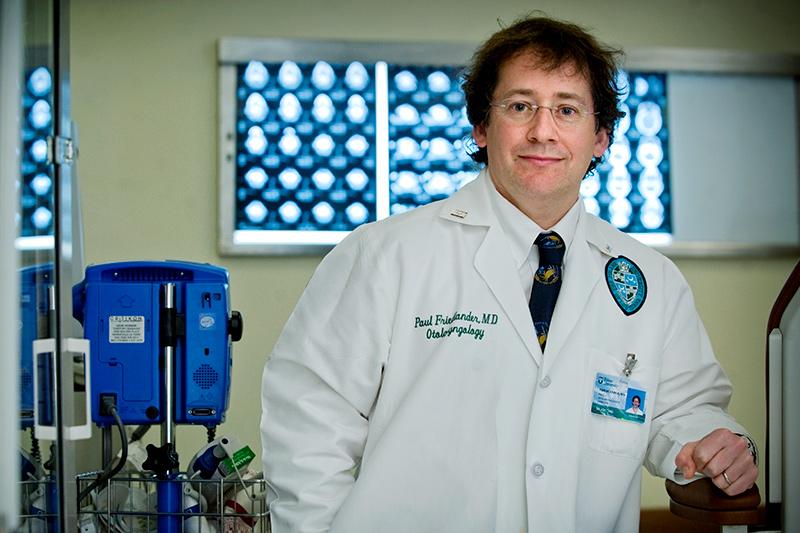Tulane addresses cancer disparities in New Orleans
Healing Hands Across the Divide (HHAD) is a Tulane initiative to address cancer disparities among the at-risk population in the New Orleans area.
“It was created post-Katrina, when we noticed a large number of patients arriving in clinic with advanced head and neck cancers,” said Paul Friedlander, MD, chair of the Department of Otolaryngology and one of the founders of HHAD.
In response, he and several Tulane colleagues created a faith- and community-based partnership with African American pastors and other leaders to gain insight into barriers to healthcare among this population.
Their initial plan was to increase community screening opportunities, but “unfortunately once we increased awareness, we realized we didn't have the resources necessary to fully handle the need,” said Friedlander. “As a physician, I can help several patients, but it's really a public health problem to help a population.”
As a result, the organization has had to refocus in recent years. They have adopted a social entrepreneurship model, becoming a creative platform for new ideas and systems to tackle the disparities issue while welcoming partnerships with those who have the resources and the desire to help implement them.
In this spirit, Friedlander and colleagues studied gaps in our healthcare delivery system and published the first model for utilizing patient navigators to impact care for head and neck cancer patients.
Additionally, HHAD has partnered with several local churches to develop a culturally competent educational model around HPV (human papillomavirus) vaccinations for children. “We're in preliminary discussions with the American Cancer Society regarding rolling this out in other churches and possibly even schools,” said Friedlander.
HHAD has also been approached by the local chapter of White Coats for Black Lives – a national group of medical students – who are interested in providing head and neck cancer screenings at Bridge House and other Tulane-based community clinics.
“Tulane attracts people who want to make the world a better place. That's one of our greatest strengths,” said Friedlander. “HHAD can be creative in terms of ideas, but to have an impact, we rely on those who can recognize the value in these ideas and help implement them for betterment. I can't wait to see what our next chapter will be.”

